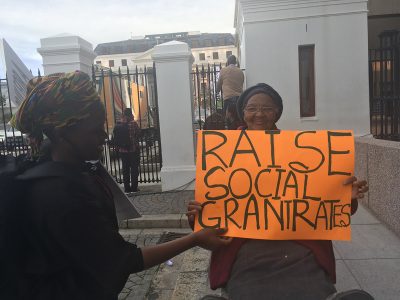By Dan Rubinstein
Photos by Giordano Ciampini
Although more work remains to be done in the weeks and months ahead, Carleton University is a big step closer to an ambitious plan for institutional strategic action on equity, diversity and inclusion (EDI).
Following a busy summer of online wellness and engagement sessions in response to racial injustice organized by the Department of Equity and Inclusive Communities (EIC), the Equity and Inclusive Communities Advisory Group has released its draft recommendations. The recommendations emerge from an institutional EDI survey and more than 40 targeted consultations with key partners and stakeholders.
The ideas in the document will be the focus of a pair of upcoming virtual town halls — on Sept. 22 and Oct. 14 — in which anybody from the Carleton community will be able to share their perspective and offer feedback. There will be one session each day for students and a separate online gathering each day for faculty and staff. An online feedback form is live now as well and will remain open until Oct. 15.
These town halls will set the stage for the university’s second annual Inclusion Week, from Oct. 19 to 23, which will provide wider context and explore practical ways to integrate EDI principles into Carleton’s organizational structures and culture.
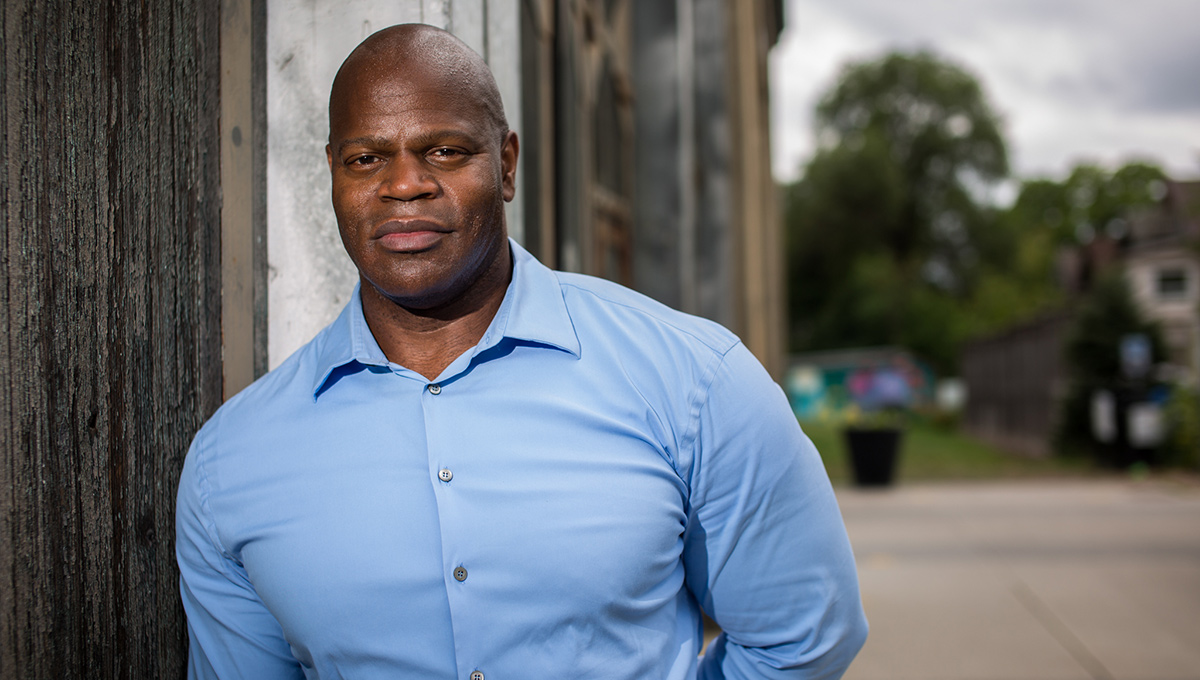
Assistant Vice-President and University Advisor for EIC Michael F. Charles
“Then we will take the pulse,” says Michael F. Charles, the assistant vice-president and university advisor for EIC, “to see if we are in a position to formalize the recommendations as the university’s EDI Action Plan.
“We want this plan to accelerate our gains across various EDI success indicators,” continues Charles, noting that this initiative unifies and flows naturally from the processes that led to this fall’s new Strategic Integrated Plan and last spring’s Kinàmàgawin (Learning Together) Indigenous strategy, as well as other road map documents, including Carleton’s Coordinated Accessibility Strategy, the Campus Safety Services Action Plan and the Canada Research Chairs EDI action plan.
“We acknowledge that there is a lot still to accomplish on the EDI agenda in a concentrated period of time,” says Charles.
“However, we are fortunate that we’re not starting from scratch. The current process builds upon plans and aspirations already embraced by the community as it leverages connections and closes gaps between them. Because of that prior work, the community is prepared for this critical phase of the conversation focussed on action and tangible steps.
“The COVID-19 pandemic has shown us,” he adds, “that we have the capacity as an institution and as a society to make significant changes and pivot quickly where circumstances require.”

Board of Governors Chair Dan Fortin (Photo Credit: Chris Roussakis)
“As a leading Canadian university, we strive to provide an environment that promotes the freedom of critical and introspective thought, leading to important growth within our own communities and beyond,” says Dan Fortin, who became chair of Carleton’s Board of Governors on July 1 and saw a presentation of the draft recommendations along with fellow board executives at the end of August.
“There is no place in our world for racism and exclusion. We believe it is our responsibility to act now, with the creation of this strategy, to build a more equitable, diverse and inclusive campus and continue to foster meaningful change at home and beyond.”
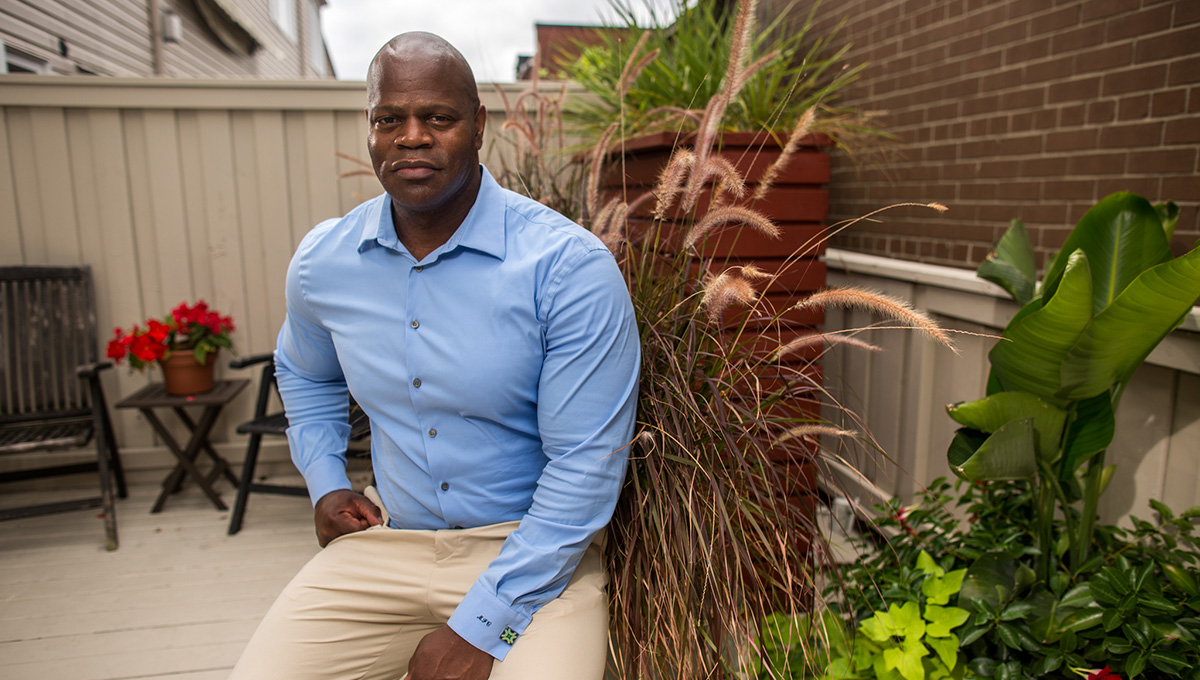
Goals Broken Down by Theme
The draft recommendations of the EIC advisory group — which was formed last April and brings together a cross-section of students, faculty, staff and community members — are broken down by theme.
In years one and two, the group calls for action on curriculum and teaching, student supports, and research, followed by executive team and Board of Governors inspiration and development and general leadership development, then work on representation, outreach and culture.
Among the many specific proposals are a call for faculties to explore the potential for program creation with a focus on decolonized, EDI-related knowledge production; the creation of a Deans EDI Working Group; annual participation in professional development incorporating EDI and anti-racism for all health and wellness counsellors; creating an interdisciplinary research cluster focused on processes of racialization and racial inequality; and a new online module in EDI and human rights for all first-year students to complete.
Enshrining inclusive communities, the draft recommendations declare, is a “process and practice of cultivating the inherent distinctiveness of each of our members while nurturing and growing points of connection and cohesion. It is the enabling of exploration and discovery at the borders of ideas, values and experience. Residing at the heart of innovation, interdisciplinarity, collaboration and engagement, supporting inclusive communities is critical to our current and future success in a globalized higher education context.”
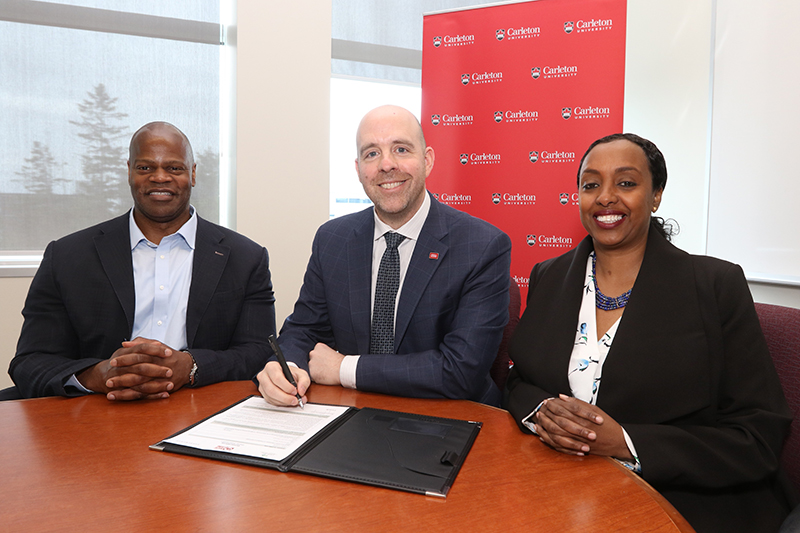
From left to right: Assistant Vice-President Michael F. Charles, Carleton University President Benoit-Antoine Bacon, and Equity Services Advisor Ikram Jama
“To support the [EDI] consultation process, we have launched the Carleton University EDI Action Plan website where everyone can provide feedback on the draft plan and register to participate in the townhalls,” Carleton President Benoit-Antoine Bacon wrote in a message to the community on Sept. 9, 2020.
“As we move to finalize this important strategy, we are trying to balance the need for full consultation with the sense of urgency that has seized our community, and indeed the world, in the wake of the killing of George Floyd. I encourage everyone in our community to contribute to these efforts, and to endeavour to model the world we want to live in by being respectful and inclusive in all our interactions, especially on social media.”
“Community has been recognized time and again as a core element of Carleton’s identity,” says Suzanne Blanchard, vice-president (Students and Enrolment). “A strong community is one in which all members feel welcome and included, where our students can thrive in the pursuit of their academic, personal and professional potential.
“Our commitment to enhancing equity, diversity and inclusion at Carleton and beyond is stronger every day and we continue to make progress, while also identifying where we can do better. Our community deserves nothing less.”
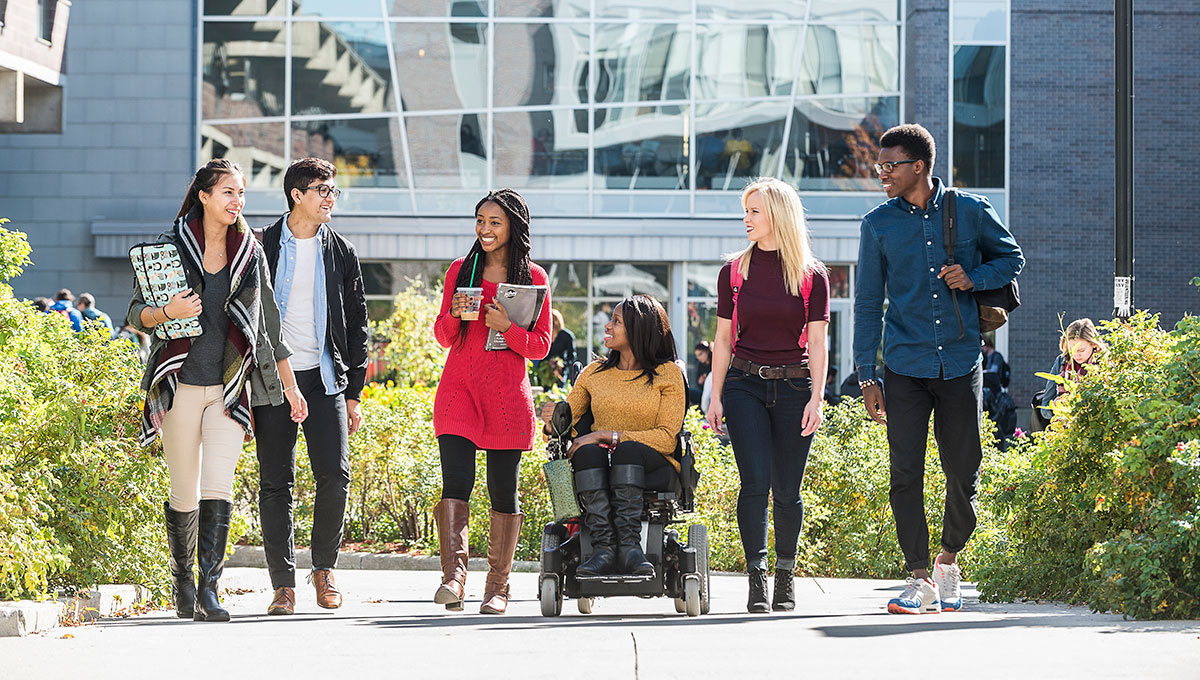
Inclusion Week Activities Draw on Expertise
For the upcoming town halls, members of the Carleton community can pre-register to speak to any of the themes addressed in the draft recommendations.
At Inclusion Week, there will a session on inclusive leadership, a panel on the neuroscience of inclusion moderated by Prof. Kim Hellemans, a session on accessibility in times of transition, and a panel on the African diaspora in the academy featuring, among others, Carleton Senior Scholar for Innovation in Teaching and Learning, Joy Mighty, Brock University President Gervan Fearon and McGill University Prof. Charmaine Nelson.
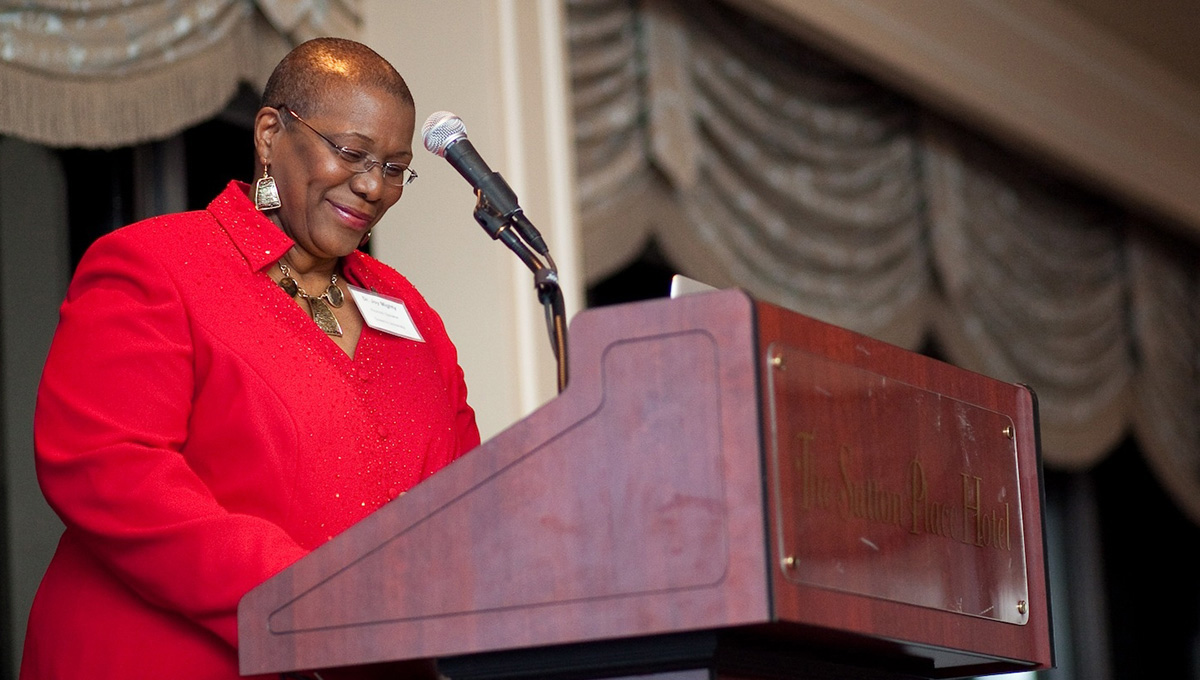
Dr. Joy Mighty
“The calibre of our panelists is outstanding,” says Charles, who will moderate the African diaspora panel.
“As difficult as COVID-19 is for many, it also allows us these kinds of virtual opportunities.”
The conversations and open consultations that will take place at Inclusion Week and in the town halls, says Charles, are a critical part of the strategic planning process. They will cover a wide range of subjects within the intersectional EDI landscape, which reflects the scope and reach of the plan-to-be.
“All of these strategic pieces are interconnected,” says Charles, “and practically speaking, you can’t move one unless you make progress on several. Nor can you just nibble at the edges. Meaningful change requires harmonic progress across multiple organizational areas supported by specific accountabilities and timelines.
“This moment in history requires this approach,” he continues, “and as a community we are ready.”
Monday, September 14, 2020 in Equity Services, Student Experience
Share: Twitter, Facebook



